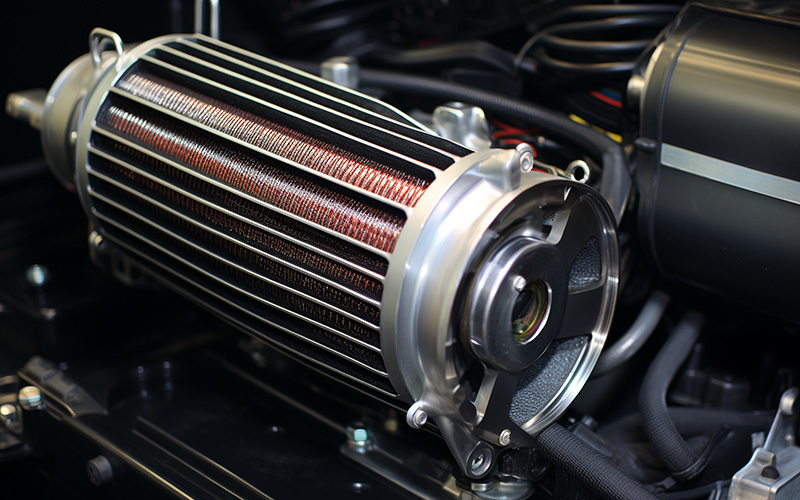Ultimate Guide to Portable Cooling for Your Vehicle: Exploring Parking Air Conditioners
Release Time:
Jun 22,2025
Ultimate Guide to Portable Cooling for Your Vehicle: Exploring Parking Air Conditioners As temperatures rise, the need for effective cooling solutions in vehicles becomes increasingly important. Traditional car air conditioning systems can sometimes be inefficient or ineffective when parked under the scorching sun. Enter portable cooling systems, specifically parking air conditioners, which offer
Ultimate Guide to Portable Cooling for Your Vehicle: Exploring Parking Air Conditioners
As temperatures rise, the need for effective cooling solutions in vehicles becomes increasingly important. Traditional car air conditioning systems can sometimes be inefficient or ineffective when parked under the scorching sun. Enter portable cooling systems, specifically parking air conditioners, which offer a convenient and efficient solution to keep the interior of your vehicle comfortably cool. This guide will delve into the various aspects of parking air conditioners, providing you with valuable insights on selection, installation, and maintenance.
Table of Contents
- Understanding Parking Air Conditioners
- Benefits of Using Parking Air Conditioners
- Types of Portable Cooling Systems for Vehicles
- Choosing the Right Parking Air Conditioner for Your Needs
- Installation Process: Step-by-Step Guide
- Maintenance Tips for Long-lasting Performance
- Troubleshooting Common Issues
- FAQs about Parking Air Conditioners
- Conclusion
Understanding Parking Air Conditioners
Parking air conditioners are portable cooling units designed to maintain a comfortable temperature inside your vehicle while it is parked. Unlike conventional car air conditioning systems that rely on the engine to operate, these units can function independently, often using battery power or the vehicle’s electrical system. This feature makes them particularly useful for long periods of vehicle inactivity, such as when parked at the beach, in a lot, or during outdoor events.
How Parking Air Conditioners Work
Parking air conditioners operate by drawing air from outside, cooling it, and circulating it within the vehicle's cabin. Many models utilize evaporative cooling techniques, while others may employ refrigerant-based systems similar to traditional A/C units. The effectiveness of these systems can vary based on external temperatures, humidity levels, and the specific model of the parking air conditioner.
Benefits of Using Parking Air Conditioners
The advantages of incorporating a parking air conditioner into your vehicle are numerous. Here, we explore some of the key benefits that make these units a worthwhile investment:
1. Improved Comfort
Keeping your car's interior cool, particularly in extreme heat, enhances comfort for both the driver and passengers. This is especially beneficial for families traveling with children or pets.
2. Energy Efficiency
Parking air conditioners are designed to operate on minimal power, making them energy-efficient. Many models use battery power or have the option to connect to a solar panel, significantly reducing energy consumption.
3. Protection for Vehicle Interiors
Excessive heat can lead to damage in your vehicle’s interior, including fading upholstery and cracking dashboards. A parking air conditioner helps mitigate this risk by maintaining a lower temperature inside the vehicle.
4. Versatility
These units can be used in various settings, not just in vehicles. They are often portable enough to be utilized in camping setups, outdoor gatherings, and as supplemental cooling for small spaces.
Types of Portable Cooling Systems for Vehicles
Understanding the different types of parking air conditioners can help you make an informed decision based on your specific needs. Here are the main categories:
1. Evaporative Coolers
Evaporative coolers function by drawing warm air through water-saturated pads, which cools the air before it enters the vehicle. They are best suited for dry climates, as high humidity can significantly reduce their efficiency.
2. Refrigerated Air Conditioners
These systems work similarly to traditional air conditioning units, using refrigerant to absorb heat from the air and expel cool air into the vehicle. They are more effective in high-humidity conditions but typically consume more power.
3. Battery-operated Units
Battery-operated parking air conditioners offer the convenience of operating independently from the vehicle's engine. They are portable and can be charged at home or via solar panels, making them ideal for camping trips.
Choosing the Right Parking Air Conditioner for Your Needs
Selecting the ideal parking air conditioner involves considering several factors, including size, power source, and features. Here are some tips to help you choose:
1. Vehicle Size
The size and capacity of the parking air conditioner should match your vehicle’s interior space. Larger vehicles may require more powerful units to achieve effective cooling.
2. Power Source
Decide whether you prefer a unit that operates on battery power, your vehicle's electrical system, or one that can connect to solar panels. Battery-operated models offer the best independence from the vehicle's engine.
3. Cooling Capacity
Cooling capacity is typically measured in BTUs (British Thermal Units). The higher the BTU rating, the more powerful the air conditioner will be. For most vehicles, a unit with a BTU rating between 5,000 and 10,000 is sufficient.
4. Additional Features
Look for features such as remote control operation, programmable timers, and energy-saving modes that enhance convenience and efficiency.
Installation Process: Step-by-Step Guide
Installing a parking air conditioner can vary based on the model and type. Here is a general step-by-step guide to help you through the process:
Step 1: Gather Required Tools and Equipment
Ensure you have all necessary tools, including screwdrivers, wrenches, and sealing materials. Read the manufacturer’s manual for specific requirements.
Step 2: Choose an Installation Location
Identify a suitable location on your vehicle’s roof or window for mounting the air conditioner. Make sure it is secure and does not obstruct any essential functions of the vehicle.
Step 3: Mount the Unit
Follow the manufacturer’s instructions to securely mount the air conditioner. Ensure it is level and does not interfere with the vehicle's aerodynamics.
Step 4: Connect Power Source
Connect the unit to your vehicle's power supply. Ensure all connections are secure and insulated to prevent any electrical issues.
Step 5: Test the System
Once everything is installed, power on the air conditioner to test its functionality. Monitor for any leaks or irregular sounds, indicating a need for adjustment.
Maintenance Tips for Long-lasting Performance
To ensure your parking air conditioner operates efficiently for years, regular maintenance is crucial. Here are some maintenance tips:
1. Clean the Filters Regularly
Dirty filters can restrict airflow and reduce cooling efficiency. Clean or replace filters at least once a month or more frequently if used often.
2. Check for Refrigerant Leaks
Inspect the system for any signs of refrigerant leaks, which can compromise cooling efficiency. If detected, contact a professional for repairs.
3. Inspect the Power Supply
Regularly check the power connections to ensure they are secure and free from corrosion. Replace any frayed wires immediately.
4. Store Properly During Off-Season
If you don’t plan to use the air conditioner for an extended period, store it in a cool, dry place to prevent damage and wear.
Troubleshooting Common Issues
Even with regular maintenance, parking air conditioners may sometimes encounter issues. Here are some common problems and their solutions:
1. Insufficient Cooling
If the unit is not cooling effectively, check the filters for dirt buildup and clean them. Also, ensure that there are no obstructions around the air intake.
2. Frequent Cycling
If the air conditioner cycles on and off frequently, it may indicate an issue with the thermostat or cooling capacity. Consult the manual or a technician for further diagnosis.
3. Strange Noises
Unusual sounds may indicate loose components or mechanical issues. Turn off the unit and investigate to prevent further damage.
4. Water Leakage
Water pooling around the unit can indicate a clogged drainage line or a malfunctioning component. Check for clogs and clear them as necessary.
FAQs about Parking Air Conditioners
1. How long can a parking air conditioner run on battery power?
The duration varies by model and battery capacity, but many units can run for several hours on a full charge.
2. Can I install a parking air conditioner myself?
Yes, many models are designed for easy installation. However, professional installation may be recommended for complex systems.
3. Are parking air conditioners safe for pets?
Yes, as long as the air conditioner is properly installed and maintained, it provides a safe environment for pets when parked.
4. Do parking air conditioners work in high humidity?
Refrigerated units perform well in high humidity, but evaporative coolers may be less effective in such conditions.
5. How often should I perform maintenance on my unit?
Regular maintenance should be performed monthly, with thorough inspections at least twice a year, especially before the peak summer season.
Conclusion
Parking air conditioners are a valuable investment for any vehicle owner looking to enhance comfort during warm weather. By understanding the various types of units available, their benefits, and how to maintain them, you can make an informed choice that meets your specific needs. With proper installation and maintenance, your parking air conditioner can provide a cool respite from the heat, ensuring a pleasant driving experience. Explore the options available and consider adding a parking air conditioner to your vehicle today for ultimate comfort and convenience.
Keywords:
You Can Also Learn More About Industry Trends





